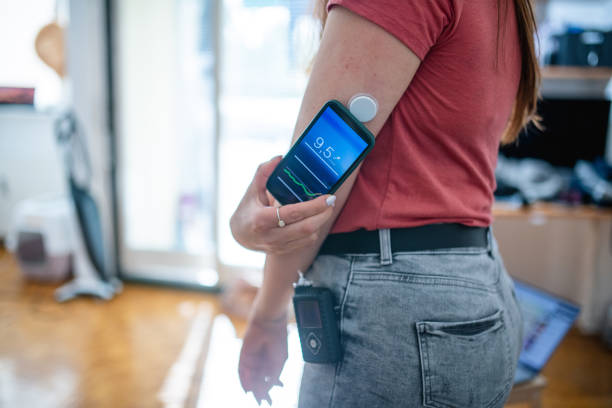Eating for Kidney Health
By: Jessica Hrdlicka MS, RD, LD/N, CDCES
Living with diabetes you may be thinking about carbohydrates and sugar in your diet, but have you considered supporting your kidneys with healthy foods as well. Currently, 1 in 3 adults living with diabetes also have Chronic kidney disease (CKD), which is why learning how to support your kidney health is important in diabetes management.
Chronic kidney disease (CKD) often develops slowly and typically without symptoms. Many people don’t realize they have CKD until it’s advanced and they may need dialysis or a kidney transplant.
Your doctor checks your kidneys regularly with blood and urine tests. Regular testing is your best chance for identifying CKD in an early stage. Early treatment is most effective and can help prevent additional health problems.
Here are some tips for eating to support kidney health:
- Limit salt consumption. Current guidelines recommend 1,500- 2,000mg per day sodium consumption for those with CKD and high blood pressure. Foods that are generally high in sodium would include fast food, potato chips, corn chips, frozen dinners, pizza, Chinese food, canned soups, pretzels, crackers, salad dressings and canned vegetables. When shopping look for terms such as no salt added, sodium free, very low sodium, reduced sodium or Low sodium plus make sure to compare several brands to find the best choice. Aiming for fresh or frozen vegetables as well as making homemade soups or cooking meals at home can help limit sodium intake. Adding spices, lemon juice, wine, pepper, herbs and chili peppers can add flavor to your meals without excess sodium intake. Also check out www.healthyheartmarket.com. This website offers low sodium salsa, ketchup, BBQ sauce, marinades, salad dressings, snacks and bread.
- Increase your plant intake! Plant based proteins such as beans, lentils, nuts and seeds as well as fruits and vegetables help support kidney health. These items are easy for the kidneys to process and are full of antioxidants, fiber and nutrients. Try adding salads to your meals or try vegetarian versions of your favorite meals such as lasagna, chili, tacos or burgers.
- Increase water intake. Having adequate water intake helps support your brain, kidneys, liver, heart and helps increase insulin sensitivity. Try aiming for half your body weight in ounces each day or follow your physician’s guidelines for fluid intake. If you are not a fan of plain water you can use additives like lemon, fresh fruit, crystal light Pure or True lemon-flavored packets to your water. Try having 8-16oz. before each meal to help lower blood sugars, improve satiety and to help with weight loss as well.
- Limit processed meats, red meats and fried foods. These foods are generally high in salt, preservatives and saturated fats, which make them more difficult for your kidneys to process than natural foods. Red meat in particular has higher levels of nitrogen, which need to be filtered by the kidneys, therefore high intake of red meats are not ideal for CKD. Processed meats include bologna, salami, bacon, sausage, pepperoni, bratwurst, liverwurst, hot dogs, ribs and Italian cold cuts. Instead aim for proteins such as beans, lentils, tofu, chicken, fish, turkey, egg whites or Greek yogurt.
- Get Moving! Exercise can help lower blood pressure, blood sugar and cholesterol levels all helping to support your kidneys. Exercise improves circulation, mental health and energy levels as well, so it is important to find an exercise routine that works for you. If you have difficulties with activity consulting with a physical therapist may help. Current American Diabetes Association guidelines recommend 30min. of activity every other day of the week. If walking is difficult or the weather is too hot, try swimming, indoor gyms, stationary bikes, yoga or pilates.
Our education team is certified as an American Diabetes Association Education Recognition Program and we are here to support you while you manage your diabetes.
For more information on diabetes management, chronic kidney disease weight loss and nutrition, call 561-659-6336 ext 8012 to schedule an appointment with a certified diabetes care education specialist, registered dietitian or class today. Please enjoy our September 2023 Living Well with Diabetes Newsletter!
Are You Ready for Your Visit?
By: Morolake Amole, MD
Going to the doctor’s office is an event. In some ways it is similar to preparing for a trip or getting ready to go grocery shopping. The best outcome come when you are ready. Let’s go through some quick tips to make the most of your office visit.
1. Verify your appointment time.
Make sure to check the date, time and location for your appointment. Knowing where you are going can help to alleviate some the anxiety that can come with going to see the doctor.
2. Bring your medications (or carry a list).
This way we can make sure we have the most accurate and up-to-date list of what you are taking. If you are taking insulin, it may be difficult (and not advised) to bring to the visit, so consider writing down all the information about the insulin (name, pen or vial, how much you take) or take a picture!
Quick Tip: Make sure to let us know about any supplements you are taking.
3. Bring data with you.
If there is any information that is important to management bring it with you. For instance, if you have diabetes and are checking your blood sugar regularly, bring your glucose meter or a chart/journal of your most recent blood sugars.
4. Mention any new concerns or problems.
Make sure to tell your provider about any new symptoms or concerns. Also update them on recent hospital stays or major illnesses.
5. Ask Questions!
If you have any questions, make sure to ask. This is your time. Ask us to explain something that seems unclear (clarify changes to management, review the plan, review potential side effects of medications, explain your condition).
Quick Tip: If you feel like you forget your questions whenever you go to doctors’ office, this is common for all us! Try jotting down any questions in week (s) leading up to your appointment.
Remember that your appointment is your time to address your health. Consider these tips when preparing your clinic visit!
Announcing Brand New Insulin Pump Class Sessions!



Advanced Pump Class
Temple Israel 1901 N. Flagler Drive
West Palm Beach, FL 33401
Tuesday October 10th 10am-12pm
Healthy Holiday Meal Planning
& Weight Loss Class Sessions!

Join our classes to stay motivated & healthy during the Holidays!
West Palm Beach Location
Temple Israel 1901 N. Flagler Drive
West Palm Beach, FL 33401
Tuesday November 14th 10am-12pm
Boynton Beach Location:
6056 Boynton Beach, Suite 245
Boynton Beach FL 33437
Tuesday November 7th 10am-12pm
If interested in attending this program please contact our scheduling department at (561) 659-6336 Extension 8001 today!
At Healthy Living with Diabetes we want to ensure that you are satisfied with all services received. We also would like your input on educational workshops that you would like us to offer, information you would like to read about in Healthy Living with Diabetes Monthly or feedback on any workshop that you may have attended. You can contact the director of education personally by email jcook@PBDES.COM or leave a message at (561) 513-5100. We would love to hear from you!
 Check us out on the web!
Check us out on the web!


